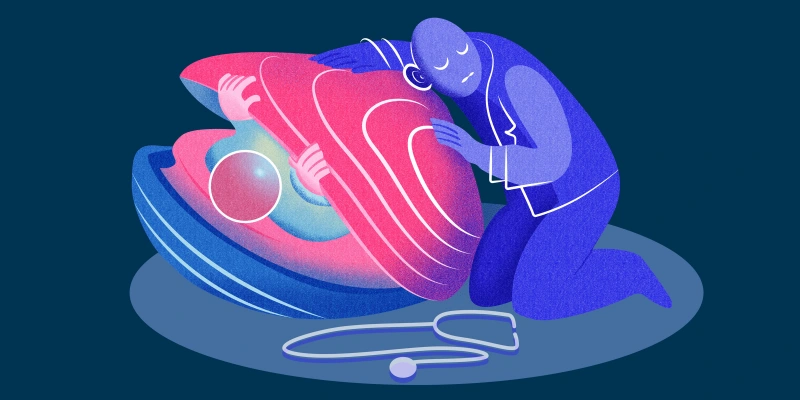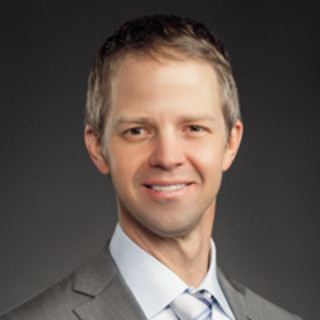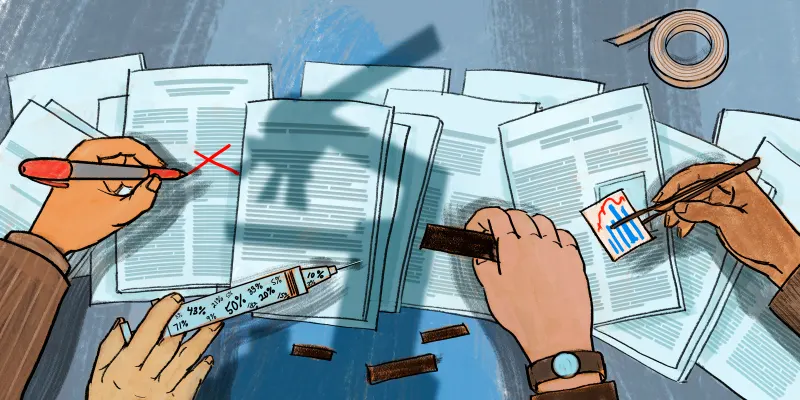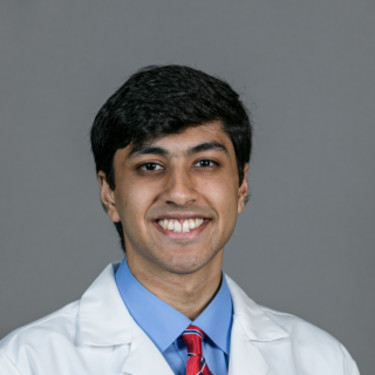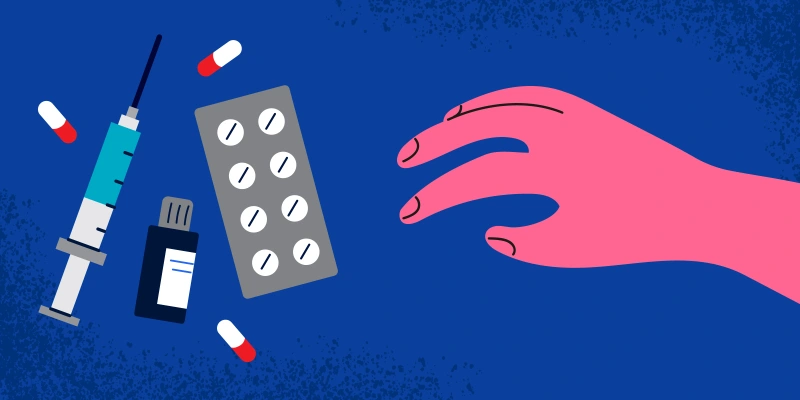The pressures of clinical life are intense, and finding ways to take care of one’s mind, body, and spirit outside of the professional space is crucial. Doximity recently asked its members to share a creative and/or unique way they balance life with the demands of their jobs, or combat burnout. This question generated more than 100 responses, one of which was selected as the 2021 Blow Off Steam Contest Winner. The other responses could be divided into nine categories: physical activity (22% of clinicians); art (20%); various (11%); gardening/landscaping (10%); spirituality (10%); adventuring (8%); volunteering (7%); quality time with loved ones (7%); and, of course, relaxation (5%).
Sweating Out the Poison
Clinicians’ physical ways of blowing off steam range from utilizing at-home gyms to playing soccer for The United Premier Soccer League. Those exercisers in the middle of the curve ride motorcycles, train as bodybuilders, and take isolated hikes in nature. For the folks in this overarching category, exercise is crucial not just for staying healthy, but for tackling mental challenges. One orthopaedic surgeon-cum-tennis player wrote that he imagines each tennis ball to represent a foe such as an insurance company, and then smashes the ball as hard as he can. Talk about “combating” burnout!
Why is intensive, often time-consuming exercise the number one hobby for busy clinicians? Pediatrician Marcella Frausto, MD, who lifts weights and tries new dance styles, might have the answer: “We all need to find a re-energizing hobby/activity to keep ourselves fit to care for our patients.”
Becoming the Next da Vinci
Closely behind exercise in popularity is art-making, be it crocheting, composing poetry, or even directing feature films. Why are so many clinicians drawn to the practice of art? Physiatrist Francisco M. Torres, MD, a memoir writer who described his hobby as “life-altering,” offered this explanation: “I wrote philosophical vignettes and observations. Stretching myself in these ways inspired renewed empathy for my patients.”
In addition, art has been shown to be an effective stress reliever for health care professionals. One ob/gyn, Debbie Mueller, MD, wrote, “My hours spent painting are a joyful interlude, and this has allowed me to cope in the healthiest way with all the challenges that 2020 and 2021 have brought.”
Pumping Up the Extracurriculars
When asked to share the unique way they blow off steam, several clinicians noted that they don’t just have one way — they have multiple. For one physician, time off from work involves six different pursuits, including swimming, learning Chinese, and reading science fiction. For another, William Russell, DO, blowing off steam involves running, then playing Mortal Kombat on Xbox 360.
In addition, a couple of clinicians shared methods of blowing off steam that didn’t quite fit into other categories — family NP Marie Szczesny, CRNP sets goals for self-development, and family physician Marsha Epstein, MD attends Al-Anon meetings.
Given the scope and number of their hobbies, how do these clinicians stay organized? By treating their hobby time as sacred. As family medicine clinician Liz Catherine S. Cory, NP put it, “All of these [activities] are on my Google calendar/physical planner. Recreation should be on my schedule and prioritized!”
Getting Their Hands Dirty
Fourth in popularity among clinicians is gardening, a topic that has previously been explored on Op-Med. Working with one’s hands to make something beautiful — or delicious! — can be a balm for clinicians who face long hours and unrelenting stressors, and can even induce them to re-evaluate their priorities. Pediatrician Rick Rogers, MD, wrote, “Dirt therapy has been good for my soul, and part of the reason I am now taking two days off per week.” Urologist and industry physician Adrienne Carmack, MD shared, “Digging in the dirt … is a creative way to process traumas, which research shows is helped by hands-on work.”
Words that came up among this group of respondents included soothing, relaxing, and creative; several clinicians noted that gardening has alleviated their feelings of burnout. Why? Respite. One cardiologist who uses his vacations to do what he calls “dirt work" explained that in gardening, there are none of the problems inherent to his patient population like bleeding or heart failure, and that the only focus is on the dirt itself.
Staying Grounded
While some health care professionals prefer to blow off steam by keeping busy, others do just the opposite. Several clinicians wrote in to say that they spend their down time practicing meditation, prayer, and/or mindfulness. Anesthesiologist Bill Schlesinger, MD, an avid meditator, explained, “It’s all about balance.”
Though some clinicians in this group go out into nature to feel settled, others find that just watching a mindfulness YouTube video does the trick. Across all respondents in this category, however, one sentiment was common: consistency of practice. As internal medicine physician Sharmila Amolik, MD shared, “Any day that I miss my meditation session, my day is not as peaceful as when I do start my day with meditation!”
Taking a Page from Evel Knievel
Neck in neck with the more spiritual clinicians are the ones who find solace in adventure. The majority of clinicians in this group wrote in to say that they spend their down time engaging in daring activities, such as sailboat racing, plane piloting, or skydiving. One medical student who partakes in white water kayaking explained that her outlet gets her “outside,” and away from the stressful world of medical school.
For the non-daredevil clinicians in this group, traveling is the preferred means of ameliorating burnout. One physician who recently finished a hematology/oncology fellowship at a county hospital stated that her plans to “travel abroad before starting life as an attending” will help her achieve a “reset.” Similarly, an NP shared that traveling has become a 24/7 lifestyle for her and her partner. The two clinicians live full-time in their RV and travel all around the continental U.S.
Putting Others First
Though mobility can be alluring, others prefer to keep their hobbies closer to home. A number of clinicians reported that they blow off steam by engaging in volunteer activities, including coaching sports, volunteer firefighting, and donating clothing and homemade items.
For these clinicians, altruism is a means of feeling connected to a community. As neurologist Fawad A. Khan, MD noted, “Giving someone recognition or showing appreciation is very fulfilling and helps me bring back positivity. Positivity is critical in high stress environments (rounding in the neurology ICU and epilepsy monitoring unit). It keeps the team strong and helps mitigate the first sign of burnout — compassion fatigue. I send thank you emails, cards, and personalized gifts as tokens of appreciation to mentors, friends, and gurus.”
Additionally, volunteering can be a way of furthering medical interests. Justine Fierman, NP, a diabetes educator who volunteers at a local wildlife rescue, shared that her background in endocrinology “fits nicely” with the specialized care animals like possums need to prevent metabolic bone disease. She continued, “My blowing off steam involves another kind of patient — a wild animal — but joining the wildlife center has been one of the most fulfilling things I have done in my life.”
Tender Loving Care
Not all animal lovers work with wildlife. For a small group of clinician respondents, playing with pets is the best way to blow off steam, as is spending time with children and grandchildren. On sharing his life with animals, FM clinician Hans Duvefelt, MD, wrote: “You can’t be stressed, frustrated or out of touch with yourself when working with an 800 lb flighty and fast Arabian horse or a 100-plus lb Alabai dog.”
Likewise, one orthopaedic surgeon shared that his way of keeping sane is to construct bedtime stories for his 9-year-old daughter. He noted that those short intervals at the end of the day have been especially helpful during COVID-19.
R & R
Among respondents in this category, blowing off steam is all about self-care. One pediatric NP, Amy Manion, PhD, attends wellness seminars in her down time, where she learns lessons she can apply both personally and clinically. She explained, “I learned different ways to deal with stress that I could use and share with my patients. When I feel stressed I stop and sit with [my] feet on the floor, wrap my right hand across to my left side, left hand to the top of my right shoulder, and take three deep breaths. It really helps when I am super busy between patients and need a minute to regroup. I have taught this technique to my patients with anxiety.”
In addition, a handful of clinicians shared that they blow off steam in the most classic of ways — by doing nothing. Not surprisingly, a good meal is often involved.
The number and diversity of answers to this prompt show how multitalented and impressive the Doximity community is. As for why maintaining a healthy work-life balance is so critical, tap dancer-cum-med student Katherine Briski may have the answer: “Pursuing a passion outside of medicine has not only been an amazing outlet to balance with the work of medicine, but has also reminded me to view patients as people with hobbies, careers, and passions rather than just the patient in front of us.”
What would you like to read about? Share your suggestions on this form.
Image: Madina Asileva / gettyimages


